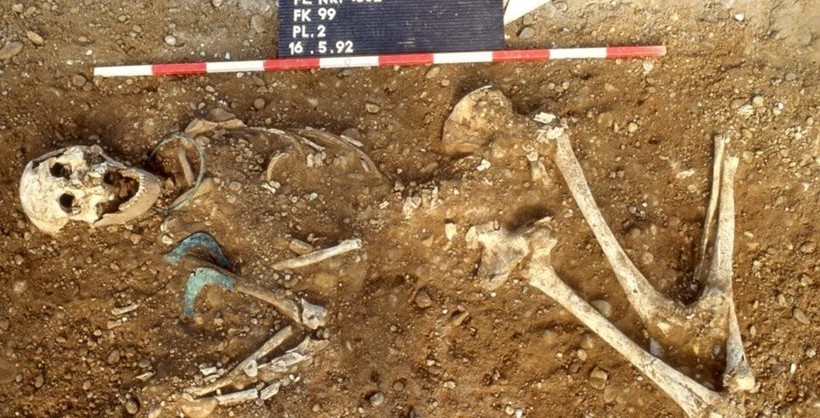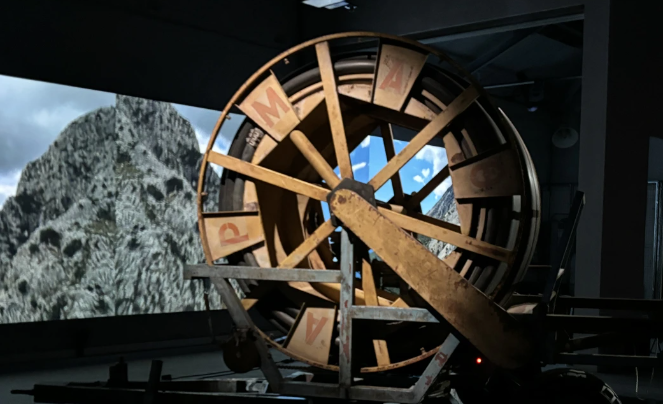Women were the ‘driving force’ spreading new ideas and technologies across Britain and Europe during the Stone Age – while their menfolk stayed home, a surprising new study has found.
Previous ideas of how our primitive ancestors travelled have been shaken by analysis of bones and teeth from ancient peoples.
They show that many females found buried in ancient burial grounds made long journeys to distant villages far from the homesteads where they were born and grew up.
And as they did so they are thought to have carried culture and technology with them between 2,500 and 1,650 BC.
The men, by contrast, by and large had stayed in the same area their whole lives – as shown by dental and bone records.
The exact status of the foreign women is something of an archaeological puzzle.
One possibility is that the women were ‘Queens of the Stone Age’ – used to cement alliances between neighbouring tribes.
However, the women were not buried any differently to other women closely related to their menfolk – suggesting they were of equal status to their local female neighbours.
Another puzzle is that no genetic relations of the women were found – suggesting either that the travelling women did not have children, or that their children moved away.
The late Stone Age and early Bronze Age were times of technological revolution, in farming, metal working, religion, and pottery.
The new research suggests that women had an important role in transmitting the latest breakthroughs in Stone Age and Bronze Age culture and technology – given that it was the females who were on the move, rather than the men.
The research published in the journal PNAS focused on the Lech river valley, south of Augsburg.
But the authors said their work is also supported by DNA tests on remains in a host of other similar late Stone Age and early Bronze Age burial sites – including Britain, Austria, Hungary and the Czech Republic.
source: dailymail.co.uk



































